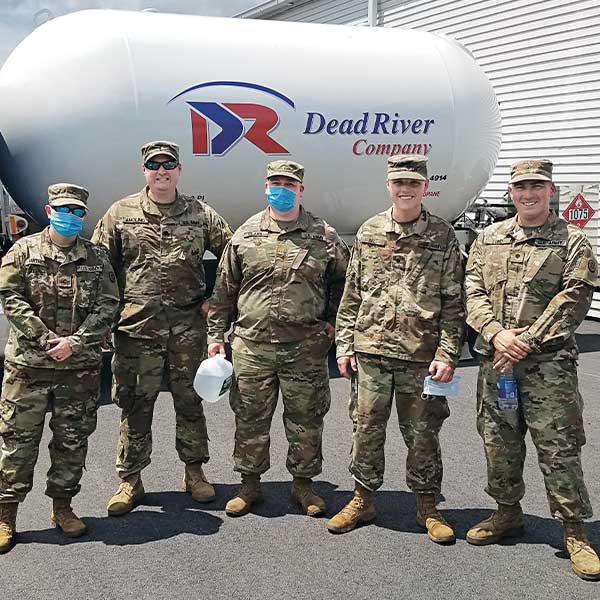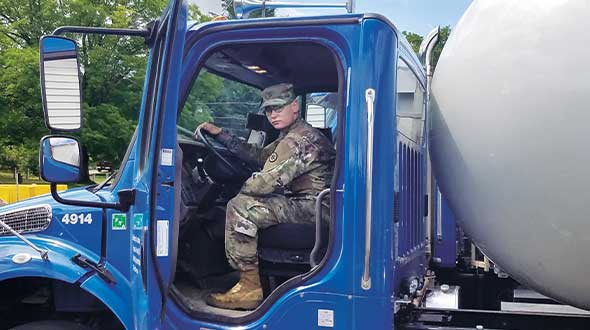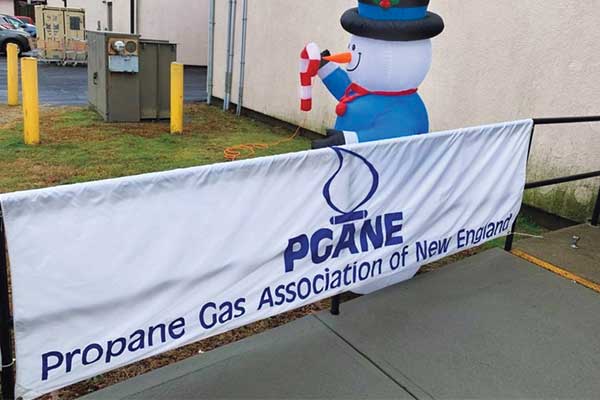Associations, retailers invest in workforce development

Seventy-two veterans were hired through the Propane Gas Association of New England’s Vets2Techs pilot program, which ran from March 2019 to March 2020. Photo courtesy of Vets2Techs
Investing in growth can pull propane operations, like most businesses, in many directions. One state association’s successful partnership with a unified institution is focusing on skilled and trained employees as a company’s greatest asset.
The propane industry is generally regarded as “aging,” meaning the average age of workers is increasing, and fewer young people are filling those roles. The Propane Gas Association of New England (PGANE), however, decided to confront the situation head-on.
Leslie Anderson, president and CEO of PGANE, says that the average ages of drivers and technicians in PGANE’s states range from 52 to 62 years old, dependent on the state.
One contributing factor, she says, may be that it’s difficult to bring drivers and technicians into the workforce quickly because they need certain licenses.
As a result, many smaller companies stopped taking new installation jobs because they don’t have enough employees to complete the jobs they already have in the pipeline.
“If you’re shutting off in September during a busy season and saying, ‘I can’t do any more installs this year,’ that’s a problem,” Anderson says. “We obviously have the demand. We’re not even, in a lot of cases, advertising in small companies because they have more jobs than they can fill.”
How PGANE supports workforce recruitment
Leslie Anderson, president and CEO of the Propane Gas Association of New England (PGANE), chats with LP Gas’ Carly McFadden about workforce recruitment and the Vets2Techs program.
A solution in Vets2Techs

Veterans who drove heavy equipment in the military can easily acquire a CDL license, making the transition into the industry easier for both the company and employee. Photo courtesy of Vets2Techs
When brainstorming ways to recruit workers, PGANE discovered Vets2Techs, a program designed specifically to bring veterans into the propane industry as technicians and drivers. The association immediately latched onto the opportunity to partner.
“The propane industry has a lot of veterans in [it],” Anderson says. “We support a lot of veteran causes, and veterans are usually great employees. When they come to work for you, they know how to get up in the morning. They know how to wear a uniform. They’re polite, and they’re dedicated, hard-working employees. They are willing to be the hero and go out in the middle of the night and get somebody’s heat back on if it needs to happen. So it’s a perfect mix for us when the Vets2Techs program came out.”
One notable benefit of utilizing Vets2Techs is that many classifications earned in the military are very similar to the classifications needed to work in the propane industry. For example, veterans who drove heavy equipment in the military can easily acquire a CDL license, making the transition into the industry smoother for the company as well as its new employee.
PGANE implemented the pilot program in the six states that comprise the association, as well as New York, from March 2019 to March 2020. During that time frame, 72 veterans were employed. The Propane Education & Research Council and the New England Propane Foundation contributed $110,000 toward the program, Anderson says.
Many civilian applicants also found company jobs via the Vets2Techs website. Throughout the pilot program’s year-long run, 950 military personnel and 1,500 civilians applied. It attracted more than 500 users and 400 subscribers, meaning the total applicant count was about 2,400.
The Vets2Techs team also educated retailers on additional cost-saving benefits and tips when hiring veterans, such as how to use the GI Bill or some of the health care offered through the veteran program in combination with their own.
A new generation

The Propane Gas Association of New England utilized Vets2Techs in the six states it covers plus New York. Photo courtesy of Vets2Techs
In addition to recruiting veterans to the industry, Anderson believes it is imperative the industry shares the environmental benefits of propane to educate and inspire younger generations to pursue careers in the industry.
“We have a fantastic story about energy security and the environmental benefits of propane,” she says. “If you work in the propane industry, you are working at a green job. Propane is EPA-certified as an alternative fuel, and we should have that message in almost everything that we put out.”
Christina Armentano, executive vice president of sales and business development at Paraco Gas, echoes the need to depict propane as an environmentally friendly fuel to the younger generations.
“A characteristic for the next generation is the desire to pursue a career that has ‘purpose’ and make ‘a positive impact’ in the world,” Armentano says. “The disconnect is that the next generation is not educated about this great energy source. As a marketer, I believe it is my responsibility to help change the narrative and share the great benefits of this critical energy source.”
Another way companies can bring in new workers is by advocating for a positive company culture while encouraging employees’ personal and professional growth. Paraco has put that at the forefront of its recruitment process.
“When promoting job openings, we are leading with culture and our workforce development benefits,” Armentano says. “We have found that this is what the younger generation wants. Yes, we also offer competitive salaries and benefits – like medical insurance with prescriptions, vision and dental coverage, a 401(k) with company match, paid time off, holidays, propane discount, uniforms and more – and that’s important, but we’re finding we need to tout the ways that our company and our industry can make a positive impact on each individual employee and our world as a whole.”
Employee retention
Once companies bring in new workers, investing in those employees can convince them to stay, perhaps even pursuing a long-term career in the industry.
Paraco has focused on investing in its employees in several ways, from classes and training to membership programs.
Paraco began cross-training its employees so they can perform in multiple positions if necessary. This makes Paraco well prepared and flexible, especially in emergency situations, and gives employees an opportunity to hone their skills in the industry. Armentano says the cross-training has been well received by the company’s employees so far.
Paraco also offers employees access to its virtual training account with Fred Pryor Seminars. By using the account, the employees can build their knowledge and professional expertise through online learning and discussion topics,” Armentano explains.
Employees in leadership roles also have an opportunity to become members at Vistage International, a peer mentoring organization for owners, executives and high-level leaders at small- and mid-size businesses. Members can attend sessions led by executive coaches, world-class speakers and more.
Lastly, Paraco invests in its workers who wish to further their education by providing its Educational Assistance Program, where the company reimburses 100 percent of the cost of tuition, fees, books and more for up to two classes each semester related to an employee’s development or current discipline.
















